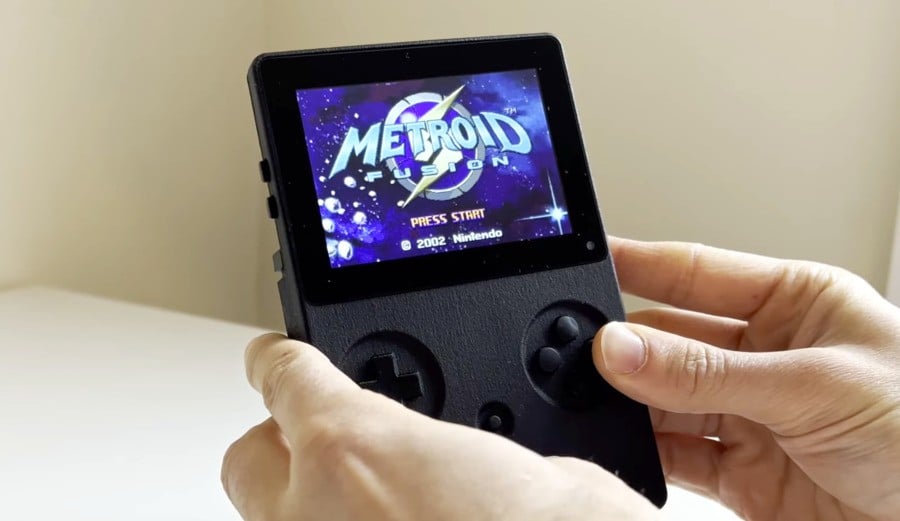
Software engineer Eli Lipsitz has just revealed their next project: an open-source FPGA-based handheld which plays Game Boy, Game Boy Color and Game Boy Advance cartridges, as well as ROMs loaded via an SD card.
The 'Game Bub' also supports the Game Boy link cable, has a built-in rumble, real-time clock and and the ability to expand it with other features in the future. It also has an optional dock which offers HDMI-out.
The console is powered by a Xilinx XC7A100T FPGA chip, and comes enclosed in a 3D-printed case. In short, it's something of a rival for the Analogue Pocket, which also uses FPGA tech and has a focus on running Game Boy games (but also runs a lot more).
However, Lipsitz appears to take issue with the way that Analogue (and other companies) claim that FPGA is more accurate than software emulation.
"There’s a lot of misleading marketing and hype out there around FPGA retrogaming," says Lipsitz. "Some claim that FPGA retrogaming devices are not emulators (because they supposedly “act like [the system] at the gate level”), that they achieve “perfect accuracy”, or that they’re superior to software emulators."
The developer goes on to state that this claim is "blatantly wrong and actively harmful" before adding:
FPGA retrogaming devices are emulators: they pretend to be something they’re not. And they’re only as accurate as they’re programmed to be, since they’re recreations. An FPGA can make certain aspects of accuracy easier to achieve, but it doesn’t guarantee it.
Software emulators can be extremely accurate. Furthermore, perfect accuracy (if it’s even possible) is by no means a requirement to play an entire system’s library of games. Some people claim that FPGA emulators are the only way to “preserve” a system, but I’d argue that software emulators are a significantly more accessible (no special hardware needed!) way to further this goal.
I believe that FPGA emulators have only one real advantage over software emulators: they can more easily interface with original hardware, such as physical cartridges or other consoles via link cables.
I did this project not because I think that FPGA emulators are inherently better than software emulators, but because I think they’re interesting and fun to build.
If you'd like to see how Game Bub is made, check out this lengthy post.





